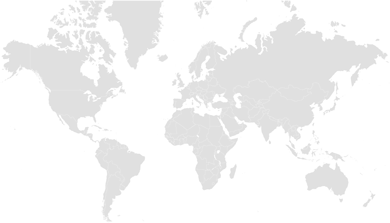Software
2020 • Chalmers University of Technology; Centro de Aguas y Saneamiento Ambiental, San Simon University; Swedish University of Agricultural Sciences EVAS – Evaluation of Sustainability for Small Wastewater Treatment Systems
The EVAS tool is a spreadsheet-based framework for assessing the sustainability of small wastewater treatment systems (WWTSs) in low and lower-middle-income countries. It uses 21 sustainability indicators across five dimensions: technical, environmental, social, economic, and institutional. Employing a traffic light scoring system, EVAS identifies strengths and weaknesses of operational WWTSs, guiding local managers in improving sustainability. It is user-friendly and accommodates data limitations, making it accessible to non-experts. Tested in Bolivia, the tool demonstrated its potential to enhance wastewater management by identifying actionable improvements.
Recovered Materials & Products
Soil conditioner
Water reuse
Waste Streams
Faecal sludge
Wastewater
Wastewater sludge
Sewage sludge
Confirmed countries
Afghanistan


What is this tool intended for?
The EVAS tool evaluates the sustainability of small WWTSs in developing countries, with a focus on addressing operational and management inefficiencies. It supports local managers and stakeholders by highlighting areas for improvement across technical, environmental, social, economic, and institutional dimensions.
How does this tool work?
The tool is implemented in a spreadsheet (Excel), with pre-designed scoring criteria and weighting for sustainability indicators. Users input data related to their WWTSs, and the tool generates scores using a traffic light method, visualizing the system's current sustainability status. It includes a to-do list to prioritize actions for improvement and allows for customized weighting schemes.
Who might use this tool and with which types of stakeholders?
The EVAS tool is intended for local wastewater managers, municipal authorities, non-governmental organizations, researchers, and development practitioners working in the WASH sector, especially in low and lower-middle-income countries.
What stages of a process can this tool support?
It supports the operational phase by diagnosing existing WWTSs' status and identifying long-term improvement needs. It is also useful in post-implementation monitoring.
What skills, capabilities, and resources are required to use this tool?
The tool requires basic knowledge of Excel and access to data on WWTS performance, even if incomplete. Users benefit from technical support or guidance during the initial assessment phase.
Where can this tool be used?
EVAS is designed for application in small towns and semi-rural settings within low and lower-middle-income countries, with examples from Bolivia.
Case examples of where this tool has been used
Two case studies in Bolivia demonstrated the tool's utility. In one town, it identified medium sustainability with actionable recommendations, while in another, a low sustainability level required extensive interventions.
Get the Tool
The tool is open access and available for download using the link below. It uses an Excel-based interface, making it easy to use with no special software requirements.
https://research.chalmers.se/en/publication/516714
Learn more
Presentation about EVAS from LatinoSan 2022
https://latinosanbolivia2022.com/download/3296/?tmstv=1669008345
Scientific paper describing the EVAS tool:
Cossio, C., McConville, J. R., Mattsson, A., Mercado, A. and Norrman, J. (2020). EVAS - a practical tool to assess the sustainability of small wastewater treatment systems in low and lower-middle-income countries. Science of The Total Environment, 746. 140938. DOI: 10.1016/j.scitotenv.2020.140938
https://doi.org/10.1016/j.scitotenv.2020.140938
Technologies
Themes
Monitoring, Evaluation and Learning
Operation and maintenance